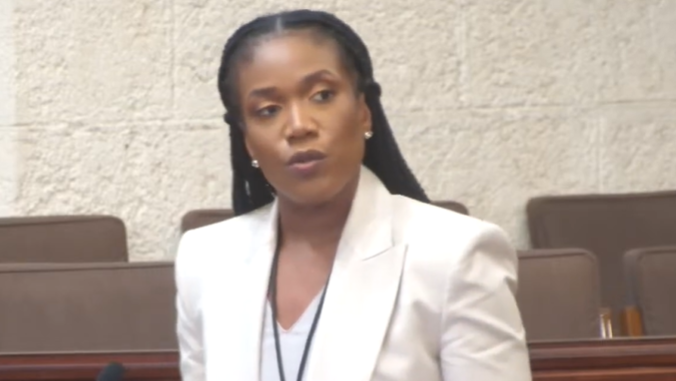Government Plans Measures to Address Declining Population, Minister Caddle Reveals Alarming Statistics

June 26, 2024
Government addresses population decline in Barbados, with Minister Caddle highlighting demographic shifts and emphasizing sustainable development over encouraging more births to counteract ageing population challenges.
The government plans to introduce measures to halt the country’s significant population decline, according to Minister of Industry, Innovation, Science and Technology Marsha Caddle.
Speaking during a parliamentary resolution on the Barbados Population Policy 2023, Caddle revealed that the estimated resident population had fallen from 277 821 in 2010 to 269 090 in 2021, based on 2021 census data.
“We are now at the place where we have a declining population. We are not replacing ourselves as quickly as we are dying,” Caddle told Parliament.
The minister highlighted a concerning shift in demographics, with the largest age group moving from 35-39 in 2000 to 55-59 in 2021. The median age has also increased from 37.3 to 42.5 over the past decade.
Caddle emphasised that the government’s approach to addressing the population decline is not simply to encourage citizens to have more children.
“That is not the call. That is not the policy solution that is being put forward by this government,” she said.
Instead, the policy aims to promote sustainable and equitable development while maintaining a high quality of life for residents, without compromising environmental sustainability or future generations’ needs.
The minister warned of the potential consequences of an ageing population, including a shrinking workforce and increased pressure on the working-age population to support dependents. Caddle also noted an emerging trend of households relying on the income of older family members.
“We have a percentage of the population that is dependent on the income of the aged, dependent on the pension or other incomes of the aged. We are seeing this increasing in Caribbean societies,” she said.
Healthcare costs for the elderly are expected to nearly double, from just under 20 per cent to nearly 40 per cent of total health expenditure, according to the policy.


